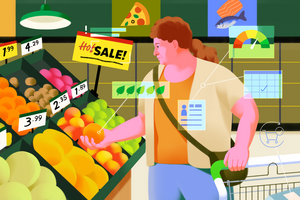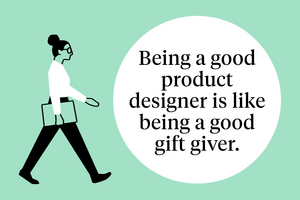What spurs one consumer to try a new product or service while another will stick with something familiar for years, even if it may not be the best on the market? Exactly how strong a pull does the status quo exert on consumers and why?
Alexander Chernev (Professor of Marketing at the Kellogg School of Management) has spent his career studying these and other aspects of consumer behavior. He found that a consumer’s personal goals, particularly their concern for safety and security, strongly influence how likely they are to switch to something new or stay with what they know. Chernev also discovered an intriguing new wrinkle in consumer behavior—people’s decisions to remain with a known entity do not stem from fear of loss as much as previous research suggested.
Chernev’s research involved asking people whether or not they would choose to invest in alternative funds, some with potentially higher yields than ones they already owned. Prevention-focused people—those concerned above all with safety and security—were more likely to stick with the status quo even when they were told that another option would most likely out-perform it. In contrast, promotion-focused people—those who focus on growth and development—were much more willing to venture into the unknown.
Underlying Motivations and the Status Quo
While previous research has hinted at this, Chernev&rsqrsquo;s study went a step further. He used evidence from three separate experiments to examine not only how consumers’ goals affect their preference for the status quo, but also their underlying motivation.
In one experiment, seventy-four undergraduate students were randomly induced into adopting either a prevention focus or a promotion focus. This was accomplished by having them answer a set of questions about their duties and obligations or, alternately, about their hopes and aspirations.
Some participants in the prevention-focused group were given the hypothetical choice of sticking with an investment fund they already owned that earned 7.1 percent interest the prior year and was expected to earn 8.15 percent this year, or switching to a new one that was expected to earn 8.68 percent this year. Only 75.7 percent chose the higher-yielding option when the choice was phrased this way. When the choice was phrased so that the higher-yielding option was also the status quo option, 97.3 percent of prevention-focused respondents chose it.
This was one of two experiments that showed that the reluctance of prevention-focused people to try new things is not solely linked to their fear of loss. After all, if loss were the only thing they worried about, what would stop them from choosing the investment that was predicted to earn them the highest return?
Regret Aversion
While previous research sparked a theory that loss aversion is the main reason prevention-focused people shy away from choosing new options, Chernev’s research proposes another reason: regret aversion. Studies have shown that people tend to blame actions that produce bad results more than they blame inactions that produce bad results (Spranca, Minsk, and Baron 1991). In other words, people who switch to a new investment fund and end up losing money will experience more regret than if they took no action and lost money on their old fund.
In another experiment, respondents were not given the option to re-invest in their old funds. They could either invest in a fund that was expected to earn 8.15 percent, invest in one expected to earn 8.65 percent, or make no choice and be randomly assigned to one or the other. When the decision was framed as a gain (both of the new options were expected to earn more money than the respondent’s old fund), only 2 percent of the promotion-focused respondents opted to make no choice. Of the prevention-focused respondents, 10.6 percent selected the no-choice option. When the decision was framed as a loss (both of the new options were expected to earn less money than the respondent’s old fund), 10.2 percent of the promotion-focused and 21.3 percent of the prevention-focused respondents opted to make no choice.
This experiment lends even more support to the notion that consumers—particularly prevention-focused consumers—are motivated to stick to the status quo by something other than a fear of loss. The greatest number of respondents begged out of making any choice at all during the scenario in which they had the most to lose.
Chernev’s research has important implications for understanding how loss-aversion influences choice. Specifically, it shows that personal goals have a significant effect on consumers’ choices, and that this effect is more pronounced for prevention-focused individuals. It also leaves the door open for further studies to evaluate whether there is a point at which consumers’ goals completely override their sensitivity to loss.
Further reading
Spranca, Mark, Elisa Minsk, and Jonathan Baron. 1991. “Omission and commission in judgment and choice.” Journal of Experimental Social Psychology 27(1): 76–105.
Chernev, Alexander. 2004. “Goal orientation and consumer preference for the status quo.” Journal of Consumer Research, 31(3): 557–565.


